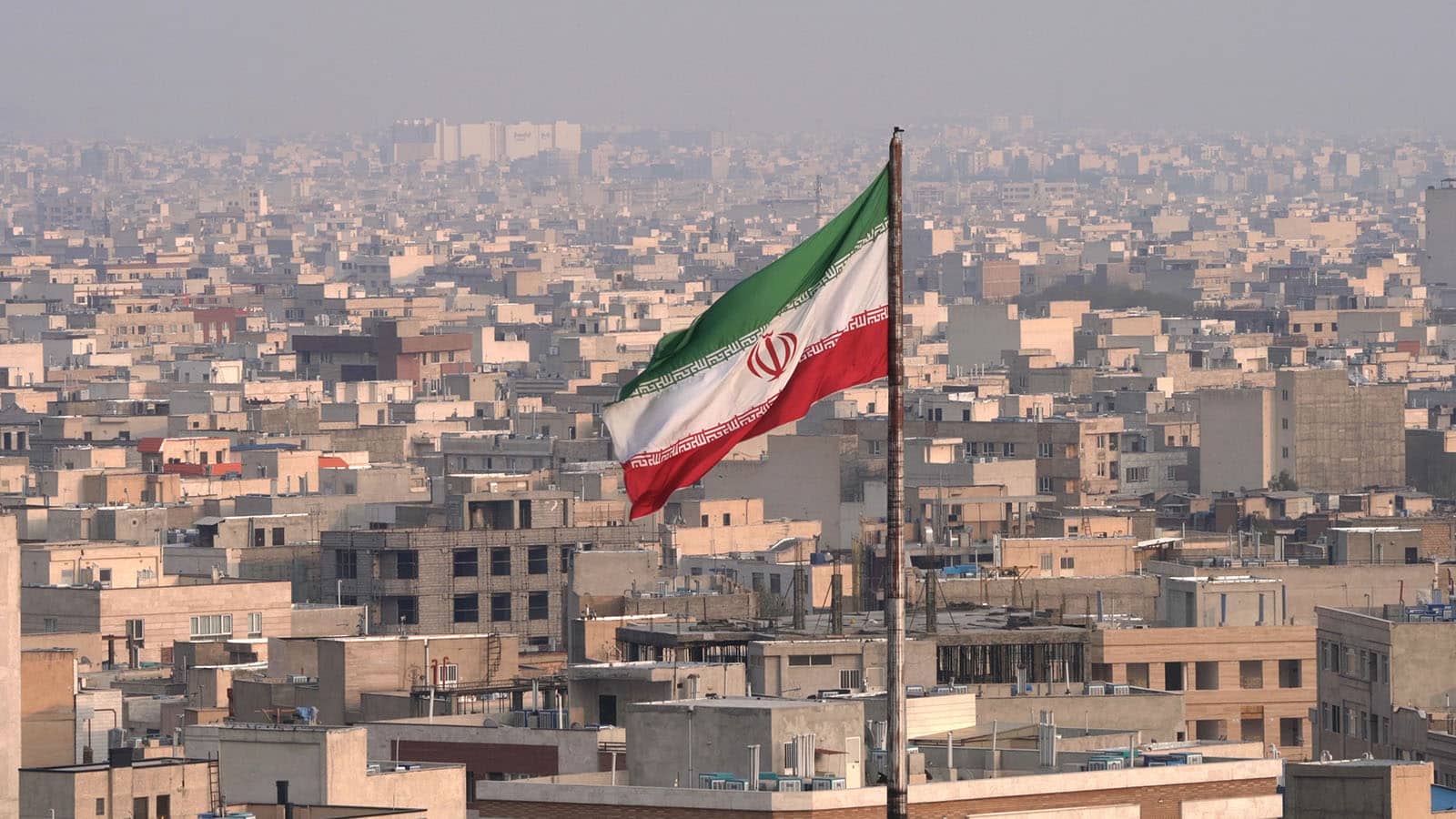Reporting Iran Sanctions Violations: A Whistleblower’s Guide
There is growing concern regarding Iranian activities, including state sponsorship of terrorism, its nuclear program, and ballistic missile development. Individuals with information about entities violating Iran sanctions can report their concerns to the Office of Foreign Assets Control (OFAC) or the Financial Crimes Enforcement Network (FinCEN) and may be eligible for an award. Learn more in our latest guide.
May 14, 2025

This information is provided for educational purposes only by Kohn, Kohn & Colapinto and does not constitute legal advice. No attorney-client relationship is created by accessing this content. Laws and regulations may change, and this material may not reflect the most current legal developments. If you believe you have a whistleblower claim, consult a qualified attorney to discuss your specific circumstances.
What are Iran Sanctions?
The History of U.S. Sanctions on Iran: From Embassy Seizure to Present Day
The United States has implemented a complex system of legal restrictions on activities with Iran since the 1979 seizure of the U.S. Embassy in Tehran. The initial Iran sanctions, enacted following this incident, involved freezing Iranian assets and imposing a trade embargo. This marked the start of a multi-decade effort to address U.S. concerns about Iranian actions.
Key Reasons for U.S. Sanctions Against Iran: Terrorism, Nuclear, and Missile Concerns
The U.S. Iran sanctions regime has expanded significantly due to persistent concerns regarding Iranian activities. These core reasons include:
- Iran’s State Sponsorship of Terrorism: The U.S. designates Iran as a state sponsor of terrorism, citing its support for groups like Hezbollah – Kata’ib Hizballah (KH) and Hamas through funding, training, and weapons provision. This has led to targeted Iran terrorism sanctions.
- Iran’s Nuclear Program: The U.S. and international community have expressed serious concerns over Iran’s nuclear program, fearing its potential development of nuclear weapons. Iran nuclear sanctions aim to curb this activity.
- Iran’s Ballistic Missile Development: Continued development of ballistic missiles by Iran raises significant security concerns, resulting in dedicated Iran missile sanctions. For example, recent sanctions on April 1, 2025, targeted entities procuring components for Iran’s UAV and ballistic missile programs.
Common Iran Sanctions Violations: Examples for Whistleblowers
Whistleblowers play a crucial role in identifying and reporting Iran sanctions violations. Common examples include:
- Illicit Iranian Oil Purchases: Purchasing Iranian oil despite import restrictions.
- Dual-Use Technology Exports: Selling dual-use technology to Iranian entities involved in missile development.
- Transactions with Specially Designated Nationals (SDNs): Providing banking services to Iranian banks or entities listed as SDNs (individuals or entities sanctioned by OFAC).
- Transshipment and Re-exports: Using third-country companies (e.g., in the UAE) to re-export U.S.-origin goods to Iran.
- Hawala Financial Transfers: Facilitating financial transfers for Iranian entities through informal value transfer systems (hawala) to evade traditional banking regulations.
Whistleblowers who have knowledge of sanctions violations are encouraged to report their concerns to the Office of Foreign Assets Control (OFAC) or Financial Crimes Enforcement Network (FinCEN), who are responsible for enforcing U.S. sanctions. Now that we have covered what Iran sanctions are, let’s look at the specific types of violations a whistleblower might encounter.
Types of Iran Sanctions Violations to Report
Understanding the various forms of Iran sanctions violations is essential for whistleblowers. These violations contravene the restrictions imposed by governments or international bodies. The specific types of violations can vary depending on the sanctions regime. Here are the common categories of violations relevant to Iran sanctions:
Financial Sanctions Violations
Financial sanctions violations disrupt the flow of funds to and from sanctioned entities. Common examples include:
- Unlawful Transactions: Engaging in financial transactions (e.g., payments, transfers, loans) with sanctioned individuals, entities, or countries.
- Providing Financial Services: Offering banking, insurance, or other financial services to sanctioned parties.
- Dealing in Blocked Property: Engaging in transactions involving assets blocked or frozen due to sanctions.
- Facilitating Evasion: Assisting others in evading sanctions, such as structuring transactions to conceal the involvement of a sanctioned party.
- Misrepresenting Transactions: Falsifying information about financial transactions to evade detection.
- Correspondent Banking Violations: U.S. financial institutions providing correspondent banking services to foreign banks that engage with sanctioned entities.
Trade and Export/Import Sanctions Violations
Trade sanctions violations involve the movement of goods and technology. Examples include:
- Exporting Prohibited Goods or Technology: Sending goods, technology, or services to a sanctioned country or entity prohibited under the sanctions regime, including dual-use goods.
- Importing Prohibited Goods: Bringing goods or services from a sanctioned country into the imposing country (e.g., importing Iranian oil into the U.S.).
- Transshipment Violations: Using third countries to illegally ship goods to or from a sanctioned country, often by falsifying documentation.
- Providing Services Related to Prohibited Trade: Offering services like shipping, insurance, or financing for prohibited trade activities.
- Dealing in Sanctioned Goods: Buying, selling, or transporting goods specifically targeted by sanctions.
Sectoral Sanctions Violations
Sectoral sanctions target specific industries within Iran. Violations include:
- Operating in Sanctioned Sectors: Engaging in business activities within targeted sectors, such as oil, gas, petrochemical, or finance.
- Providing Goods or Services to Sanctioned Sectors: Supplying goods, technology, or services that support the operations of sanctioned sectors.
Circumvention and Evasion Techniques
Sanctioned parties often employ deceptive tactics to evade restrictions. These include:
- Use of Shell Companies: Creating or using shell companies to obscure involvement in transactions.
- False Documentation: Falsifying invoices, bills of lading, or other documents to conceal the nature or origin of goods.
- Use of Front Companies: Entities that appear legitimate but are controlled by or acting on behalf of sanctioned parties.
- Smuggling: Illegally transporting goods across borders to evade trade sanctions.
- Digital Currency and Cryptocurrency: Using digital currencies to bypass traditional financial channels.
- Deceptive Practices: Employing other deceptive tactics to hide the involvement of sanctioned parties.
Human Rights and Terrorism-Related Sanctions Violations
These violations involve dealings with individuals or entities sanctioned for human rights abuses or terrorism.
- Transactions with Designated Individuals or Entities: Conducting business or providing support to individuals or entities sanctioned for human rights abuses, terrorism, or proliferation of weapons of mass destruction.
Proliferation Sanctions Violations
Proliferation sanctions aim to prevent the development of weapons of mass destruction.
- Providing Materials or Technology for WMD Programs: Supplying goods, technology, or services that could contribute to Iran’s nuclear, chemical, biological weapons, or ballistic missile development.
Whistleblowers play a crucial role in uncovering these violations, which have significant national security and economic implications. Due to the complexity and frequent changes in sanctions regulations, it’s recommended to consult OFAC’s website for the most up-to-date information.
Example Cases
Standard Chartered Bank (2012)
This UK-based bank paid a massive settlement for illegally moving billions of dollars through the U.S. financial system on behalf of Iranian clients. They deliberately obscured the origin of these transactions to bypass U.S. sanctions. (Press Release)
BNP Paribas (2014)
Another major financial institution, BNP Paribas, faced substantial penalties for processing billions of dollars in transactions with sanctioned countries, including Iran, Sudan, and Cuba. (Press Release)
ZTE (2017)
The Chinese telecommunications company ZTE was penalized for illegally shipping U.S.-made technology to Iran, violating export control regulations. (Press Release)
Reporting Iran Sanctions Violations: Your Guide to Action
Once you have identified potential Iran sanctions violations, it’s crucial to understand how to report them effectively. Whistleblowers should first consult with an attorney specializing in sanctions cases to ensure their rights are protected and to navigate the reporting process.
Here’s a guide to the organizations and procedures involved:
Where to Report Sanctions Violations
- Office of Foreign Assets Control (OFAC): The primary agency responsible for administering and enforcing U.S. sanctions.
- Financial Crimes Enforcement Network (FinCEN): Focuses on combating money laundering and financial crimes related to sanctions evasion.
- Securities and Exchange Commission (SEC): Has jurisdiction if the violation involves a publicly traded company or securities.
- Department of Justice (DOJ): Involved in significant or criminal sanctions violations. A criminal case brought by the DOJ can become a related action to other enforcement actions brought by the SEC, FinCEN or other regulatory agencies.
- Internal Compliance Programs: Reporting internally can be a first step but be aware of potential retaliation risks. It is advisable to consult with an experienced whistleblower attorney about the pros and cons of contacting compliance programs and how to preserve your right to claim a whistleblower award if you decide to go to internal compliance before reporting to regulatory agencies.
Whistleblower Awards and Protections
Significant financial awards and legal protections are available for whistleblowers who report sanctions violations.
- Anti-Money Laundering Act (AMLA) Whistleblower Program: This program is administered by FinCEN and the DOJ. It offers rewards of 10% to 30% of recovered sanctions exceeding $1 million and also pays whistleblower rewards on monetary recoveries in related actions.
- SEC Whistleblower Program: Offers similar rewards for reporting sanctions violations involving publicly traded companies.
Key Considerations for Whistleblowers
- Original Information: The information must be original and not already known to the government.
- Voluntary Disclosure: The information should be provided voluntarily.
- Successful Enforcement: Awards are contingent on the government successfully recovering monetary sanctions.
- Anonymity: Whistleblower programs often allow for anonymous reporting.
- Retaliation Protection: Laws provide protection against retaliation.
- Importance of Evidence: Providing documentation and credible evidence is crucial.
Consulting with a specialized attorney is highly recommended to navigate the reporting process and maximize potential rewards and protections.
Contact Our Firm for Legal Assistance
Navigating the complexities of Iran sanctions violations and whistleblower programs can be challenging. To ensure your rights are protected, your information is handled confidentially, and you maximize your potential for a financial award, we strongly recommend contacting our firm.
Our firm specializes in whistleblower cases involving sanctions violations and can provide you with:
- Expert Guidance: We understand the intricate laws and regulations surrounding Iran sanctions and whistleblower programs.
- Confidentiality and Protection: We prioritize your anonymity and safeguard you from potential retaliation.
- Strategic Case Management: We can help you gather and present compelling evidence to government agencies.
- Maximizing Rewards: We have experience in navigating the reward programs and advocating for the highest possible payout.
- Legal Representation: We will represent you during all interactions with government agencies.
If you have knowledge of Iran sanctions violations and wish to report them safely and effectively, contact Kohn, Kohn & Colapinto today for a free and confidential consultation. In many cases, we don’t get paid unless we win your case.
Our Firm’s Cases

$300 Million in Sanctions and Fines
Our firm and Athens-based Greek law firm of Pavlos K. Sarakis & Associates jointly represented Greek whistleblowers who proved that the multinational Swiss-based pharmaceutical company Novartis paid millions in bribes to illegally market drugs in violation of the FCPA. Novartis was required to pay $300 million in sanctions and fines.

$2 Billion Recovered
Wilkinson blew the whistle on a $230 billion Russian money-laundering scandal that moved rubles out of Russia, converted them to dollars at Danske Bank Estonia Branch, then to moved the dollars to New York. The largest money laundering scandal in history.

$70 Million in Rewards
With an unwavering commitment to our clients who expose foreign corruption, we have been instrumental in obtaining over $70 million in rewards for multiple non-U.S. citizen whistleblowers across Europe, Asia, and Latin America.


